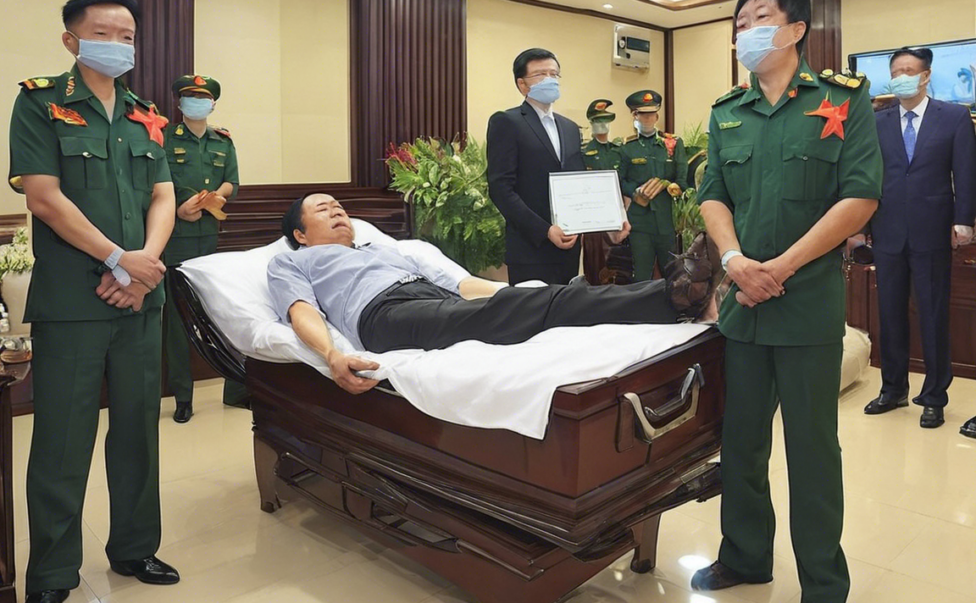Vietnamese Billionaire Faces Death Sentence
Vietnamese Billionaire Faces Death Sentence
The news of a Vietnamese billionaire facing a death sentence has sent shockwaves across the world. Pham Nhat Vuong, one of the wealthiest individuals in Vietnam and the founder of Vingroup, has been convicted on charges of financial fraud and embezzlement. The case has not only raised questions about corporate governance and legal transparency in Vietnam but has also highlighted the potential risks that come with rapid economic growth in emerging markets.
Background of Pham Nhat Vuong
Pham Nhat Vuong’s rise to becoming a billionaire is a classic rags-to-riches story that has inspired many in Vietnam and beyond. Born in a small town in Vietnam, Vuong showed entrepreneurial spirit from a young age, starting his first business while still in college. Over the years, he diversified his interests and investments, eventually founding Vingroup, a conglomerate with interests in real estate, retail, technology, and hospitality.
The Rise of Vingroup
Vingroup quickly became one of the most prominent companies in Vietnam, with its upscale residential developments, shopping malls, and hotels reshaping the urban landscape of major cities. The company’s success catapulted Vuong to the ranks of the world’s wealthiest individuals, earning him a reputation as a savvy businessman with a keen eye for market trends. However, this success story has now been overshadowed by the looming death penalty hanging over Vuong.
The Legal Case
The charges against Pham Nhat Vuong stem from alleged financial irregularities within Vingroup, including siphoning of funds for personal gain and manipulation of financial statements to inflate the company’s value. The public prosecutor has accused Vuong of betraying the trust of shareholders and violating the integrity of the financial system. The case has been closely watched by investors, analysts, and the government alike, with implications for the business environment in Vietnam and the wider region.
Impact on Vingroup and the Economy
The uncertainty surrounding Vuong’s legal troubles has had a profound impact on Vingroup’s stock price and market value, with investors expressing concerns about the company’s long-term viability. The Vietnamese government has moved swiftly to reassure markets and stability, emphasizing its commitment to upholding the rule of law and protecting investor interests. However, the case has cast a shadow over Vietnam’s reputation as an emerging market investment destination.
Lessons Learned
The case of Pham Nhat Vuong serves as a cautionary tale for business leaders and entrepreneurs operating in emerging markets. It underscores the importance of good governance, transparency, and compliance with regulatory requirements to sustain long-term success. Corporate leaders must prioritize ethics and integrity in their decision-making processes to avoid the pitfalls that come with unchecked ambition.
Conclusion
The fate of Pham Nhat Vuong remains uncertain as he awaits the final judgment in his trial. The case has captured the attention of the global business community and serves as a reminder of the risks that come with rapid wealth accumulation in emerging economies. As the story of Pham Nhat Vuong continues to unfold, it will be closely monitored for its implications on investor confidence, corporate governance, and legal environments in Vietnam and beyond.
FAQs (Frequently Asked Questions)
- What are the specific charges against Pham Nhat Vuong?
-
Pham Nhat Vuong has been charged with financial fraud and embezzlement, stemming from alleged irregularities within his company, Vingroup.
-
How has the legal case impacted Vingroup’s business operations?
-
The uncertainty surrounding Vuong’s legal troubles has led to a decline in Vingroup’s stock price and market value, raising concerns among investors.
-
What lessons can business leaders learn from Vuong’s case?
-
The case highlights the importance of good governance, transparency, and compliance with regulatory requirements for sustained success in business.
-
How has the Vietnamese government responded to the case against Pham Nhat Vuong?
-
The government has assured markets of its commitment to upholding the rule of law and protecting investor interests, seeking to maintain stability.
-
What implications does Vuong’s case have for Vietnam’s reputation as an investment destination?
- The case has cast a shadow over Vietnam’s reputation as an emerging market investment destination, raising concerns about legal transparency and corporate governance.

